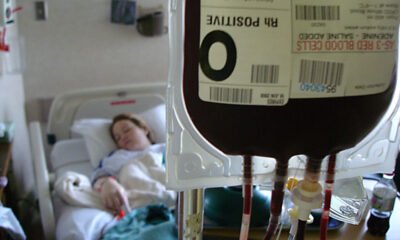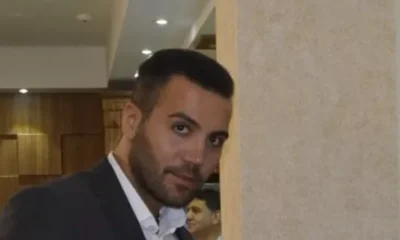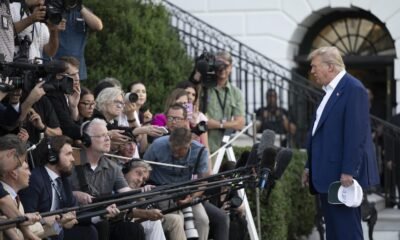Business
Paris Sets Sights on Bold Olympics Reset with Daring Games and Spectacular Opening

The most audacious Olympic opening ceremony ever will kick off 16 days of competition in the heart of the French capital.
PARIS, France — Paris, long celebrated as a city of dreamers, gears up for a spectacular beginning to its first Olympic Games in a century. The city known for the Eiffel Tower will host an opening ceremony along the River Seine that even French President Emmanuel Macron initially deemed “crazy.” This event marks the start of 16 days of unprecedented competition across Paris.
In a city where history meets innovation, expect a bold, celebratory spectacle. Following two pandemic-affected Olympics, this iteration promises a vibrant union of sports with Parisian fashion, gastronomy, and culture. Organizers believe the event will help restore enthusiasm for the Olympics, particularly among younger audiences.
However, the challenges are substantial. Paris has faced extremist attacks and must ensure the safety of 10,500 athletes and millions of visitors amid international tensions in Ukraine and Gaza. French elite special forces are part of the delegation’s security effort.
If successful, these Games could be transformative, ushering in a new era for the Olympics. They will feature nearly equal numbers of male and female athletes, a milestone for gender equality in sports. Organizers aim to address environmental concerns by creating more sustainable and socially responsible Games, avoiding the pitfall of redundant arenas.
The Games will also showcase some of Paris’ most iconic locations, such as beach volleyball near the Eiffel Tower, and introduce breakdancing to attract younger audiences. Crowds will return for the first time since the pandemic affected previous Games in Tokyo and Beijing.
Thomas Jolly, a renowned French theater director, will turn central Paris into an open-air stage for a grand opening ceremony at sunset. The Eiffel Tower is set to play a prominent role, with hundreds of thousands of people expected to line the banks of the Seine as athletes parade on boats.
Additionally, a no-fly zone extending 150 kilometers around Paris will be enforced. Security measures include fighter jets, surveillance flights, drones, and other equipment to ensure safety.
This extravagant showcase could be cathartic for a city still mourning from the 2015 extremist attacks. Potential torchbearers for the Olympic cauldron include sports icon Zinedine Zidane and survivors of the attacks, illustrating the city’s resilience and hope.
Paris is taking risks to leave a lasting impression. Moving events out of traditional venues such as the Stade de France complicates security arrangements but plans to host sports like skateboarding and archery in the city’s heart aim to make the Games more inclusive.
Critics worry about extensive security measures, including AI-equipped surveillance technology. The Games also stretch to the French Pacific territory of Tahiti, where surfers will ride gigantic waves, highlighting the extensive reach of this global event.
Approximately 45,000 police and gendarmes, plus 10,000 soldiers, are keeping Paris and its suburbs secure. The commemorative medals will feature pieces from the Eiffel Tower, symbolizing the city’s integral role in this historic event.
With major sections of the Seine and surrounding areas blocked off ahead of the opening, local businesses are concerned about losing customers. Meanwhile, limiting new construction has saved money and helped reduce the Games’ carbon footprint compared to previous host cities like London and Rio de Janeiro.
Officials argue that these Games will leave a positive legacy in Paris. Efforts to clean the long-polluted Seine have accelerated, aiming to make it swimmable by next year. Mayor Anne Hidalgo recently demonstrated the river’s improved water quality by taking a dip herself.
With an estimated cost of 9 billion euros, funded largely by sponsors and ticket sales, Paris aims to keep expenses lower than recent Olympics. After the opening fireworks, the city will transform into a playground for athletes.
American gymnast Simon Biles returns, and French-born basketball star Victor Wembanyama is set to shine. Athletes from Ukraine and Palestine will compete with personal stories of conflict and resilience. While only a few will take home medals, all will share the experience of Paris, a city of timeless allure.


















